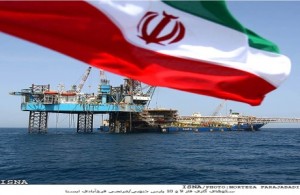Vienna, Austria (Reuters) – Bijan Zanganeh returns this week to the same Vienna hotel suite he last occupied eight years ago as Iranian oil minister, ready to prepare OPEC for what Tehran hopes will mark its return to the rank of the cartel’s second biggest producer.
Emboldened by its nuclear deal with the West, Iranian oil negotiators led again by industry veteran Zanganeh, will seek to reassert Tehran’s authority in the Organization of the Petroleum Exporting Countries at a Wednesday meeting. Western sanctions imposed in 2012 on Iran for its nuclear programme have cost it dearly, losing it billions of dollars in oil revenues and market share in OPEC – largely to its main regional political rival Saudi Arabia, and neighbor Iraq. With its exports still shackled by sanctions for at least another six months, Iran poses no immediate threat to the status quo. Oil ministers are widely expected to roll forward until June an agreement to hold their output near 30 million barrels daily for 12 member countries. But oil traders will be watching closely for signs of cooperation, or otherwise, between the big three producers in OPEC, knowing that Riyadh and Baghdad will need to find room for Iran should its interim nuclear deal be verified and sanctions lifted.
Reappointed by Iran’s new and more western friendly President Hassan Rouhani, Zanganeh has openly criticized Iraq, now OPEC’s second biggest producer, for increasing its market share at Tehran’s expense. “We expect the Iranians to say, ‘We’re coming back to the market and we need some space,'” said an OPEC delegate from a rival Gulf Arab producer. Rising volumes from the United States spurred by production from new shale technology may mean OPEC will need to cut output in the second half of 2014 if it wants to keep oil prices above $100 a barrel. “From now until the end of March, the market looks well balanced and the price should stay supported. But from June, there will be a need for a cut,” said a senior OPEC delegate.
“The onus would be on Saudi Arabia and a few other Gulf producers to rein in the incremental output they put into the market,” said Samuel Ciszuk, oil analyst at the Swedish Energy Agency. Because of sanctions, Iran’s output is down a million bpd since the start of 2012 to 2.7 million bpd while Iraq, recovering from years of war and sanctions under Saddam Hussein, has boosted production to nearly 3 million bpd. “Iran’s position has been strengthened after the Geneva deal, but there is still a long way to go,” said energy consultant Mehdi Varzi, formerly of state National Iranian Oil Company.
“The bottom line is the Iranians don’t want to rock the boat and put $100 oil under threat, so they need the cooperation of the Saudis.” Oil prices now near $110 a barrel are close to ideal for Saudi Arabia, OPEC’s most influential producer because of its one-third share of group output, and its position as the only producer globally that keeps any significant spare capacity. Riyadh pumped at record levels above 10 million bpd when sanctions were imposed on Iran and to fill the gap left by post civil war disruption in Libya, throttling back a little recently to support prices.



